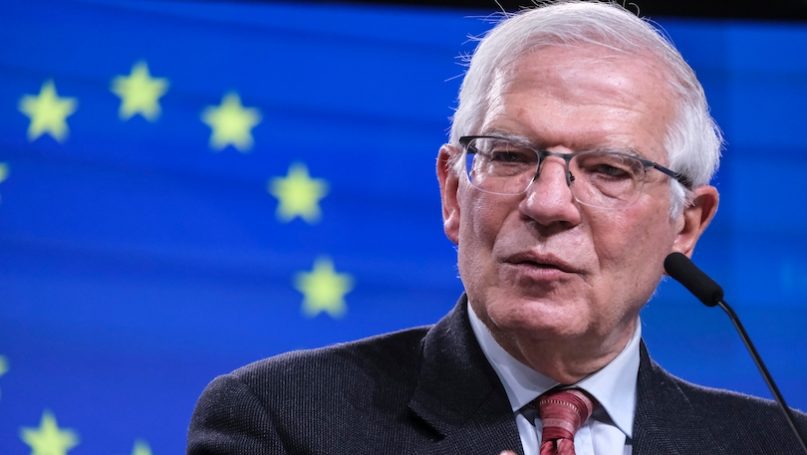
The EU High Representative for Foreign Affairs, Josep Borrell, spiked considerable controversy last week with his polemic declarations describing Europe as a “garden” menaced by the surrounding “jungle”. This metaphor has been criticized as outstandingly colonial and Euro-centric, portraying Europe as a garden in which “everything works”, while the rest of the world requires civilizing. But, far from undoing this figure of speech, Borrell stands by it, as he writes in his recent blog. One could argue that metaphors are harmless. But we recognize, like Michel Foucault, that power operates through language and, therefore, metaphors. Regardless of the EU High Representative’s attempt to dismiss his metaphor as innocent, we must remember that metaphors (language) reveal a way of seeing the world and are, by definition, political in nature, making them worthy of debate. This logic leads us to scrutinize the ideas propelled by the EU High Representative: What does the idea of a European garden mean? To address this interrogation, we propose reading Borrell’s speech through environmental and feminist lenses.
Inspired by feminist thinker Donna Haraway, our starting point to unpack these current affairs is the notion of staying with the trouble. Staying with the trouble requires being acutely aware of the terrible ecological and social challenges we are currently facing. It entails unpacking, identifying and raising awareness of these issues while effectively strengthening collaborative care – care for one’s community, other species, and for one’s own wellbeing. Such care and awareness, that can help find compelling solutions to the ecosocial crises, necessitates a critical reviewing of the language and discourses of the ruling class.
We take issue with the EU High Representative´s metaphor not only because it is colonial and Euro-centric, but also because it conjures up images of a jardin à la française; a garden imposing order on nature through symmetry, trimmed grass, undesired species, and the predominance of aesthetics over diversity. Pointing out that a garden (Europe) is preferable to a jungle conveys a problematic historical narrative in which humans are separated from, and elevated above nature, and are thus by definition in conflict with their environment, aka the gardener taming nature’s “strong growth potential”.
Contrary to what Josep Borrell implies, we must also conclude that this European garden does not truly embody the virtues of liberté, égalité, and fraternité and is, in many ways, a jungle in its own right. Only by embracing nature can the virtues of liberty, equality, and fraternity come into their own, precisely because social stability, freedom, and justice necessitate living in ecological harmony. In other words, it is the ever-evolving, creative and imaginative principles of Gaia – not the laws of the gardener – that offer us a sustainable path to the future.
As long as our political leaders consider enforcing domination over nature to be advantageous, something worth striving for, they will continue exploiting the planet. It is this very internalized way of thinking, revealed through language and our use of metaphors, that lies at the root of the climate and biodiversity crises. The tyranny of destruction, appeased by univocal market-based and techno-utopic fantasizing, mistakenly considers environmental impacts as externalities to be overlooked. Yet, the destruction of our life support systems, as painfully illustrated in last week’s release of the WWF’s Living Planet Report 2022, is not an externality to be disregarded, being as it is intrinsic to overproduction and consumption. This situation requires an urgent and significant shift in our imaginaries regarding our place in nature.
Here, we draw inspiration from the late Bruno Latour. How would he have interpreted the EU High Representative´s speech? Building on his reflections dealing with modernity, we know Latour criticized the modernist dualistic interpretation of nature and society, thereby striving to reconnect the social and natural worlds. As the title of his 1991 book suggests, he argued that We Have Never Been Modern, because what defines us as “modern” – making a dualistic distinction between nature and society – is based on false assumptions. Following this line of thought, we believe it is crucial to assert that Europe has never been a garden. Rather, we sustain that Europe is a jungle.
Endorsing the idea that Europe is a jungle within other jungles means endorsing the belief that we are full of environmental and social dependencies. It is only through such an awareness that Europe can transcend its imperialistic and environmentally destructive practices. Let us therefore stay with the trouble and abandon the idea that nature can be brought under totalizing control by promoting alternative visions of humanity’s relationship with nature, such as ecosocial or eco anarchist philosophies. Nature and society are not two contrasting entities, Europe has never been a garden and we have never been its gardeners.
Figure 1
Drawing by artist Zulema Galeano, representing a dandelion in the city, searching for its place and claiming space. Rogue petal flora, flying over the frontiers that try to parcellate a cemented idea of nature.
Zulema Galeano is a visual artist specialised in drawing, fashion, art direction and photography.

Further Reading on E-International Relations
- Opinion – Europe is Still Able to Build Tanks
- Opinion – Europe’s Lagging Position on Microprocessors
- Opinion – Coronavirus: Beyond Europe’s North-South Divide
- Opinion – Germany, Europe and Potential Outcomes of the Ukraine War
- Opinion – Europe and China’s Growing Assertiveness
- Opinion – The Good, the Bad and the Ugly of COVID-19 Recovery Financing in Europe